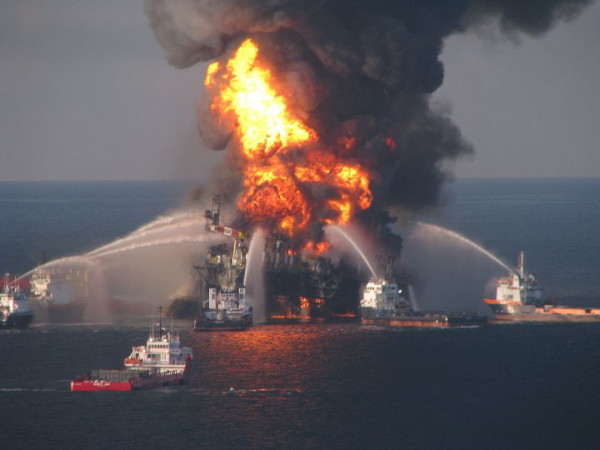Ten years on and the question remains: have we learnt anything from this event? And if we haven’t what a shame. Here are some gems you can use in any organisation today, whether you’re in the oil drilling business or not!
Or you may think, such a catastrophic event won’t take place in our organization! We are not going to blow up like Macondo! Yet, if the people in an organization are silent that is unhealthy and potentially quite dysfunctional. Silence is not an indicator that all is well.
What’s the background information?
In April 2010 Macondo, a deep-water well 65km off the US coast, blew out on the sea floor. BP was the operator, the drilling contractor was Transocean, the world’s largest offshore drilling contractor, and the cement provider was Halliburton, the industry leader. Some of the event key facts are it caused:
– The death of 11 of the 136 crew, 9 of whom were Transocean employees
– An estimated 5 million barrels of spillage, the largest in history and it was unable to be contained for 3 ½ months
· Pollution along 515 km of US coastline which caused a dead zone of 207 square kilometres around the wellhead
– Severe financial and reputational damage – BP alone provided US $32B for costs, litigation and compensation
· BP’s share price fell by 50% and the CEO was forced to resign
· Enormous damage to the public credibility and reputation of the oil drilling industry with flow on to economic, social and environmental impacts.
For more information refer to: Strategic Management: Thinking, Analysis, Action by Hubbard G, Rice J and Galvin P and https://www.britannica.com/event/Deepwater-Horizon-oil-spill
What were the US Oil Spill Commission findings?
The immediate causes of the disaster were a series of over 30 specific engineering and human and management system failures. All were foreseeable and preventable.
There were issues like the drill pipe being incorrectly positioned. Drilling the mud and removal too early. The cement casing and lining of the well did not meet standards. The seepage test results were misinterpreted. Management were anxious to cap the well and move on because the well was over cost and time. BUT at what cost?
What are the big-ticket items that will help you in whatever organisation you work for?
Here they are:
1. The person in charge of the well was not appropriately experienced or trained
2. BP wasn’t investing in leadership to manage high risk
3. There were confused roles and responsibilities within and across the three organisations
4. Communication was poor between BP, Transocean and Halliburton staff
5. Decision-making was compartmentalised on the rig and everyone was working in silos
6. And most importantly, there was a culture of fear and no reporting of unsafe practices.
Often it is suggested to me that organisations don’t have the money to support and invest in leadership programs, coaching, clarity with roles and responsibilities and decision-making and/or to improve communication systems, practices and relationships. And I would suggest to you that you ask yourself the question: At what cost?
The reverse of this thinking is that some organisations spend a lot of money on learning and development only to find that it wasn’t worth it. Harvard Business Review has a great article by Steve Glaveski identifying that the majority of training is ineffective and content flawed because:
– Its learning for the wrong reasons
· At the wrong time on the wrong things
· And, we forget what we’ve learned very quickly if we don’t apply it
Glaveski quotes Wired co-founder Kevin Kelly as saying: get good at beginner mode, asking dumb questions, making stupid mistakes and teaching others what you learn. Glaveski talks about lean learning and how to apply your learning back in the workplace for better results for individuals, teams and the organization. If you want more information go to this link to read the whole article: https://hbr.org/2019/10/where-companies-go-wrong-with-learning-and-development
And if you are interested in improving and developing your people for the right reasons at the right times on the right things, please call me. I can help.
Photo credit – Coastal Review Online, April 2020




